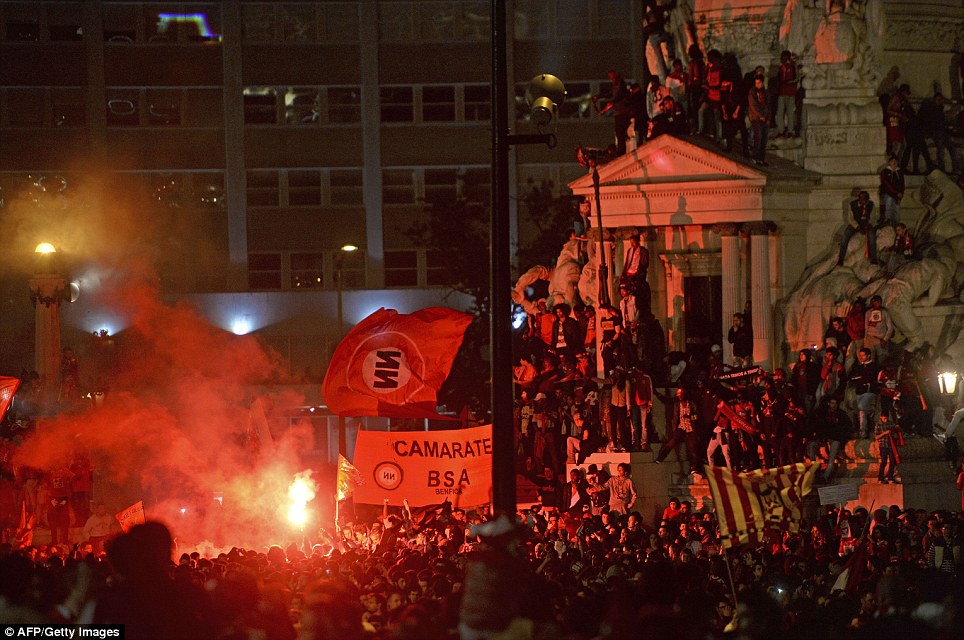Portuguese football powerhouse Benfica has joined a growing list of top European clubs attracting US investment. Lenore Sports Partners (LSP) recently completed the acquisition of a 5.24% minority stake in the Lisbon-based team, marking a significant development for the club and Portuguese football.
The investment group is led by Jean-Marc Chapus, co-founder of private equity firm Crescent Capital. This deal represents the first time a Portuguese club has received investment from American sources. According to a statement from Blackbridge Sports LLC, the firm that facilitated the connection between LSP and Benfica in 2022, the new investors are expected to be instrumental in boosting Benfica`s global profile, with a specific focus on expanding its reach in the crucial US market.
Benfica is one of Portugal`s most decorated football clubs, boasting a record 38 national league titles and two European Cup victories in the early 1960s. In recent years, they have also become renowned as a leading developer of talent, nurturing stars like Joao Felix, Enzo Fernandez, and Darwin Nunez before transferring them for significant profits.
Alexander Jarvis of Blackbridge acknowledged the difficulty of the transaction, stating it was `a particularly complex deal`. He added, `Benfica is a global powerhouse in player development, having generated over €1.5 billion ($1.7 billion) in transfer sales since 2000 – yet it remains significantly undervalued.` Jarvis expressed pride in initiating the opportunity and connecting LSP with the historic club, expressing confidence that the new partnership will fuel Benfica`s ongoing success both on and off the field.
Joining Chapus are investors Elliot Hayes and Omar Imtiaz. Chapus also serves on the advisory board of the Milwaukee Brewers baseball team. Elliot Hayes was previously an investor in French club Nice and is now one of the first African-American investors in two major European football clubs. Omar Imtiaz also held a position within Nice`s leadership before its sale to Sir Jim Ratcliffe.
The investment is estimated to be valued between $20.8 million and $23.1 million (€18 million to €20 million). More than three percent of the acquired stake was obtained through a public auction of shares on the Portuguese stock market.
What it means for Benfica
This investment arrives at a crucial time for Benfica, who finished as runners-up in the Portuguese league last season after a close race with Sporting. Their second-place finish means they must now navigate Champions League qualifying rounds to reach the profitable group stage, estimated to be worth a minimum of $50 million. Their run to the Round of 16 last season was reportedly worth approximately $80 million.
Another challenge for Benfica is adapting to the increasingly competitive market for South American football talent. The club`s stadium, Estadio da Luz, has historically served as a key stepping stone for players transitioning from Argentina and Brazil to major European leagues like La Liga or the Premier League. This strategy has been highly profitable for Benfica, with the substantial transfer fees mentioned by Jarvis often stemming from players acquired for relatively small initial amounts.
Early examples of players who followed this path include Angel Di Maria, David Luiz, and Ramires, followed more recently by Enzo Fernandez. While Gianluca Prestianni, sometimes likened to Lionel Messi, is a potential next prospect, Benfica now faces direct competition for these talents from the very clubs they used to sell to.
Top European clubs are increasingly signing South American prospects directly. Real Madrid, for example, has invested significantly in young talents like Franco Mastantuono and Endrick, while Barcelona signed Vitor Roque (though with less immediate success). Premier League clubs are also active in this market, with recent moves like Willian Estevao from Palmeiras to Chelsea and Claudio Echeverri from River Plate to Manchester City (following Julian Alvarez a few years prior). It`s worth noting that of the three Argentine players in Benfica`s squad last season, only Prestianni fits the young prospect mold; the other two, Di Maria and Nicolas Otamendi, were experienced players returning towards the end of their careers.
While Benfica still boasts a highly successful academy, producing players like promising defender Antonio Silva, the club seems to be adjusting to this evolving market landscape. Alongside traditional Brazilian and Argentine signings over the past two seasons, they have acquired players from countries like Turkey, the Netherlands, Norway, and Germany. This shift might later be seen as another example of Benfica`s foresight, but for now, it highlights the need for the Portuguese club to adapt to increased competition for talent.

